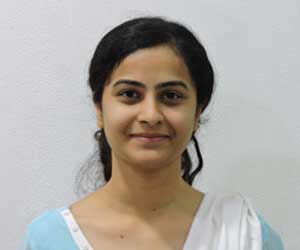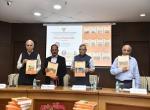Introduction
The Vivekananda International Foundation (VIF) hosted a two-day workshop titled ‘Indian Ethos in Management’ for scholars, students, mid-career professionals and business persons in an attempt to formulate and create a narrative for Indian business ethics and ethos. The objective of the workshop was to sensitise and generate a dialogue based on Indian classical economic, business and ethical concepts that are not only part of the textual tradition since ages but have also been in practice over centuries through Indian business persons both in India and overseas.
The inaugural session of the workshop was opened by the remarks of Dr Arvind Gupta, Director, the VIF, who defined India as a civilizational state that has sustained harmony in all walks of life, grown and prospered. He emphasised on the need for bringing in and relating cultural values to management and business curriculums in order that a more realistic narrative may be created. He said that the need was to learn from sustainable business practices of Indian business houses as well as adopt them at the global level by formalising a structure.
Shri S. Gurumurthy ji, thereafter, highlighted the success of the Indian business story globally. He said that the need of the hour was to take a helicopter view of business practices as they are enmeshed and operate in web of culture, ethics, traditions and human spirit. Citing the Brahma Sutra Bha̅śya of Adi Shankaracharya he said that there are 8.5 million species according to the text and it is the human being alone that is endowed with the mental faculty to take care of them and the cosmos. In India, a single sided view has not been practiced especially in the way we do business and conduct our professions. It is well-established through various studies that consumer behaviour in India is not individualistic but based on social recognition. Thus, we need to build our own counter-narrative that opposes Western anthropological modernity that says that ‘one size fits all’.
Gurumurthy ji mentioned the approach taken by Truman in 1948 for progress which demanded that ancient philosophy, caste, creed have to be scrapped for rapid economic progress. These are after all the price one has to pay for progress. This also led to the long standing debate in the West as to whether wealth belonged to the individual or the state. The point, here was that both communism and socialism are both by products of the same ideology. The Weberian model, too, was based on disintegration of society for material progress and wealth creation. Modernity is what is relevant today, Dr. Gurumurthy asserted. He said that at the G20 Central Banks Governors meet it was recognised that there is no uniform development approach that fits all countries. There is a need to oppose the view that a foreign ideology must dominate as indeed culture will put a ceiling on economic growth. He said that India’s practices and history are a prism that establishes its moral authority in developing its own formal narrative given the success and size of the Indian economy and the success stories embedded within.
The key note address of the workshop was delivered by Dr Rahul Varma, President of SREI Foundation. Dr Rahul Varma spoke extensively about the work his company’s foundation had done towards corporate social responsibility and emphasised the need for a human touch in business. He touched upon the United Nations Millennium Development Goals aimed at improving the lives of the poorest people in the world, while speaking about his seamless efforts to introduce workplace spirituality and create a mind-set that will help fighting workplace stress and handle situations with a new approach. “We can’t change the world outside, until we change the inside,” he asserted pointing out that the idea was to serve and share. In his view, spirituality helps people to develop a strong connect with their own self and with God (Sa̅dhna).
Dr Varma advised the participants to prioritize and differentiate between what is valuable and what is that which is value added. He emphasised on terms like ‘Swachh Bharat’, wherein the need to promote inner cleanliness, expand our minds and be good and wise decision makers is the essential idea. Swachh is truth, truth is hope and positivity, he added. And as we are moving into a world of rapid industrialization, we are moving away from nature and Indian ethos, he added. In this context, philosophy and methodology play a vital role.
Prof Gunjan Pradhan Sinha, in her lecture, brought to the fore the common thread in Indian thought and praxis that lends ingenuity to the Indian business ethos. She asserted that India has emerged one of the most powerful economies in the world due to a strong backbone of sustainable business and economic policy that has adapted and yet remained consistent in ideology with changing times. She presented the Indian ethos as a detailed web of culture, custom, religion, morality, tradition along with various shades and degrees of each of these. Also, emphasising on how our ethos bares the hallmark of transcendentalism that is looking beyond the material-physical world in our approach and actions. This is embodied by the four puruśa̅rthas in Indian thought, namely, artha, kāma, dharma and mokṣa as goals to serve as means for higher moral, spiritual and knowledge states.
Prof Gunjan shed some light on the notion of ‘shubh la̅bh’ which serves as an ideal model to explain the inextricable link between business, ethos, ethics, culture and tradition. It highlights the importance of synchronising multiple factors and approaches and does not advocate any one economic model. It proposes a model where all elements and stakeholders are respected and sustainability in profit is the key. She highlighted some pre-existing themes such as the Duties and Obligations of the Ruler, Trade and Taxation which are now finding recognition in the modern management systems.
In the second session talk, delivered by Dr Shashi Prabha Kumar, participants were taken back to the lessons from Vedas and Upanishads. Dr Kumar started with the great emphasis on the importance of money and resources in Rig Vedas and how it should be acquired by valid means. Simultaneously, money has to be earned as though one has hundred hands and distributed or shared as though one has thousand hands. She familiarised us with the idea to see business practices in various forms and accept their validity through value based means embedded in the Indian ethos. She covered the whole range of economic activities undertaken in the Vedic Society and the ethos which led to a visible economic growth. The literature mentions that whatever the king took was multiplied manifold and distributed to the people in the society (possibly through public goods). While the great poet Kalidasa stated that the king did not take money for self-indulgence but for the praja just like the sun takes water from the earth but gives it back in the form of rain.
However, Dr Kumar mentions that contrary to the case today, the wealth possessed by an individual should be a cause of nourishment and not anxiety. And this Artha or wealth, should be seen as the bridge that takes us to moksha as well as higher mental and spiritual growth. Which is why, one needs to go back to nature in order to make our businesses sustainable.
On day two, Dr P Kanagasabapathi shared some of his insightful findings from his research work. He spoke on home-grown methods of finance rendering Indian businesses have one of the highest savings in the world. The essential value system embedded in our culture is that of saving more and consuming less, which he enlarged by giving examples from states like Tamil Nadu, Gujarat, among others. He shared his understanding of the existing Value Systems of Indian Entrepreneurs, which form the backbone of the Indian entrepreneurship model that is completely non-corporate and not driven by the state. He felt that the entrepreneurs within a community do not see each other as competitors but support each other financially and even otherwise in performing socio-economic duties.
The lectures were followed by a panel discussion of practitioners, who shared their experiences with the participants. Mr. P Satija from Tata Steel, alluded to the 10 rules of conduct that include yama, niyama, dama from the Bhagvad Gita, which need to be practiced today by every professional and in every profession. He also elaborated on the lessons from the Mahabharata on resource management. Dr. Faizal Ahmad, from Fore School of Management, elucidated the innumerable lessons from Dharmashastra and Manusmriti for the young managers and business persons in the country. Talking about public discipline in ancient times, he said that there were measures to ensure quality standards and preventing in corruption in weights and measurements. He focused on the immediate need to teach the Indian way of management. Dr Ahmad talked about India’s participation in international trade during ancient times and the role that it played in geopolitics.
Concluding the two-day workshop, Dr Arvind Gupta made a recommendation for a strong shift in our policy framework. He also suggested that there is a need is to develop something like the Gross Domestic Knowledge Product in India which has such a huge repository of traditional and evolving knowledge systems. Also, with the kind of ethos India has, it is possible to generate social movements that have regenerative potential.





Post new comment